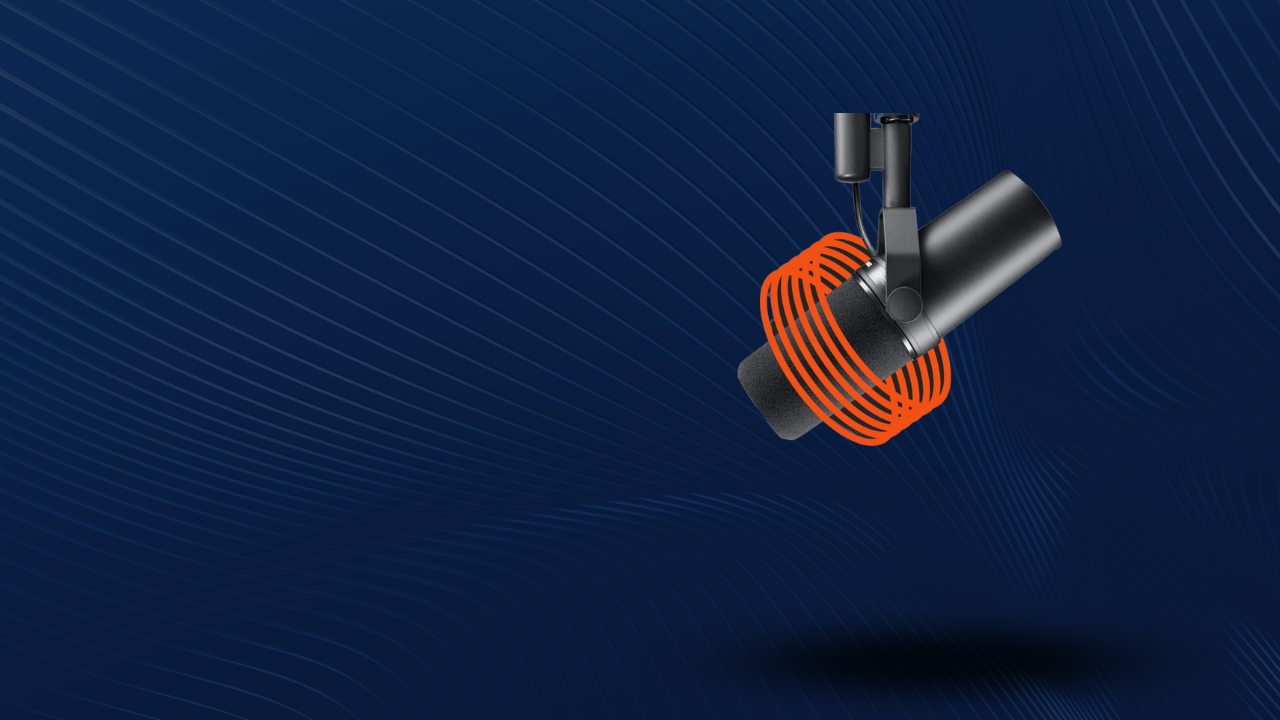The Podcast Movement Archive is Live
In the interest of empowering the podcast industry and sharing insights beyond the walls of a convention center, Podcast Movement has uploaded all of the Dallas 2025 stage events to a new YouTube channel. Running alongside the official Podcast Movement YouTube presence, The Podcast Movement Archive will serve as a repository for PM presentations going forward. 2025’s sessions have been made public, along with custom playlists sorting them by their respective conference tracks.
Spotify Names Co-CEOs as Daniel Ek Transitions to Chairman by Molly Scheutz
Daniel Ek has transitioned from CEO to executive chairman of Spotify. Former chief business officer Gustav Söderström and former chief product and technology officer Alex Norström have been announced as co-CEOs who will step into their roles effective January 1st. The two have been co-presidents of the company since 2023, largely leading strategic and operational development at Spotify.
How to Block Bad Ads by Bryan Barletta
As Barletta says in his opening: every single ad run on a podcast is ultimately placed there by decision of the podcaster themselves. Whether directly from them, or through their team. Baked-in ads, dynamic insertion, programmatic setups, all of them are actions only possible with the direct consent of the podcaster.
Over the past year the Department of Homeland Security has increased their spend in podcast advertising, and a knock-on effect has been an uptick in negative comments from shocked podcast listeners sharing they just heard an ad for Immigration & Customs Enforcement in their favorite show. Even with publishers promising they’ve done everything they can to stem politically-charged ads, they’re getting through. While rare occurrences, they still happen, and they strike a nerve.
Barletta gives an overview of how this can happen, what tools exist to tweak it, and what podcasters can do to take full ownership of the ads running on their show. Even in a world where an advertiser, motivated to reach placement quota, could casually label a DHS ICE recruitment ad “Job Recruitment” instead of “Politics” without consequence.
One can head this particular issue off at the pass by full on blocking the source domain (e.g. dhs.gov), but this can be kneecapped by platforms that don’t require advertiser domains in the first place. Not every platform is built to granularly allow each show to select what the block, meaning publishers could be faced with mass-blocking genres across every podcast managed, even if some actively want ads in that classification or from that domain.
“These issues aren’t unique to podcasting, but when they occur, they are certainly more jarring than a banner ad. The more popular podcasting becomes, the more issues like this will rise up. We’re far past a gas & oil ad running on an anti-fracking podcast. Now, with the solutions available to monetize your show, it’s critical we understand the decisions we’re making and the controls we’re able to use.
It’s not fun to hear that this is all on the shoulders of the show, but that’s the truth. Podcasters pick their hosting platforms and their monetization partners. They benefit from the revenue as much as they suffer from the harmful association.”
The piece ends with a call to podcasters to start conversations. Ask platforms and partners how their ad ops work, how things can be set up to avoid ads from sources you don’t want. And if they can’t easily answer those questions, perhaps it’s time to start looking for a different platform.
IAB Podcast Upfront
The IAB Podcast Upfront was this week, and as usual a lot happened. First up: let’s go over Spotify’s stuff.
Variety covers the announcement Spotify is opening up their ad inventory to Amazon’s demand-side platform. The global strategic partnership makes Spotify streaming audio and video inventory available to Amazon DSP customers. Megaphone podcast publishers are also getting in on the ad action, with Spotify announcing that in mid-year 2026 Megaphone-hosted publishers will receive access to more monetization tools. Specifically, publishers will be able to traffic both direct-sold campaigns and private marketplace deals using Spotify ad tech. And finally, The Hollywood Reporter – in partnership with Spotify – is doing their first ever dedicated podcast Roundtable video, featuring top nominees from the Best Podcast category at the Golden Globes.
On the data side, new Nielsen Podcast Fusion powered by Edison Research data debuted in Nielsen Media Impact demonstrating the wider reach of podcast advertising. In an example of a one month campaign with a $5 million budget, the starting month shows reach among adults 18-44 is at 60% with just 1% of the budget going to podcast spend. The following month funds were reallocated from broadcast and cable TV to give podcasting 21% of the funding. With no additional budget put into the campaign, reach lifted to 76% with the same demographic.
As followers of the Podcast Standards Project will remember, the current push for wide adoption in the podcast industry is that of HLS (HTTP Live Streaming). In short, HLS is an existing adaptive bitrate streaming protocol that breaks media into small segments, meaning podcast consumers can listen to or watch a video podcast episode without pre-downloading the entire file, as well as automatically-adjusting playback quality that tunes itself to their connection speed. A quote from SoundStack CEO Jon Stephenson:
“Podcast consumers are some of the most enthusiastic audiences out there – the onus is on all of us to keep them coming back, and fast, clear listening is fundamental. But that’s just the starting point. Enabling more efficient ad insertion, setting the foundation for more accurate measurement, and more, HLS will be a tremendous catalyst to increased ad spend and publisher growth.”
In addition to SoundStack’s announcement, Podnews Daily is also getting in on the fun with HLS support.
The rise of the creator conglomerate by Alexander Lee
Content creation has grown to the point there are several large players in the industry that have built up their own media companies around the content itself. MrBeast, Dhar Mann, Mythical Entertainment, they’re all production companies that have evolved into creator conglomerates in their own right. The story takes a bit of a twist as Lee soon discovered all of his sources knew each other. A quote from the article:
“The nine creator-company executives interviewed for this article appeared to all know each other, with several of them referencing a web of behind-the-scenes WhatsApp chats used to swap notes about topics like advertising fees, brand deal negotiations and behind-the-scenes creator community drama.”
Much like podcasting, the executives of the YouTube world are prioritizing collaboration and industry-maintenance over cutthroat competition.
Finally, it’s time for our Quick Hits. These are articles that didn’t quite make the cut for today’s episode, but are still worth including in your weekend reading. This week:
- Mission Based Media founder Dan Kendall has a new piece about milkshakes and podcasting. Audiences are “hiring” podcasts to do a job, the trick is making sure podcasts fit the job description.
- PRX has acquired long-time exclusive sponsorship sales firm Soundrise, and starting next year will absorb Soundrise as PRX’s in-house sales team.
- Pew Research has a new fact sheet sharing data about how American adults consume podcasts, including how often they get news from podcasts directly.
- Larj Media’s Joelle Nole has a new piece making the argument in defense of protecting and supporting transparent, independent journalism in the podcast industry.
- Cultural content hub Pod Digital Media has announced a slate of omnichannel “cultural event activations” during a presentation at Podcast Upfront.
- Variety covers the Late Night-ification of podcasting to the point where podcasts not even about movies are attracting press-shy actors to promote movies, namely Leonardo DiCaprio’s appearance on In the Heights.













































































































































































































